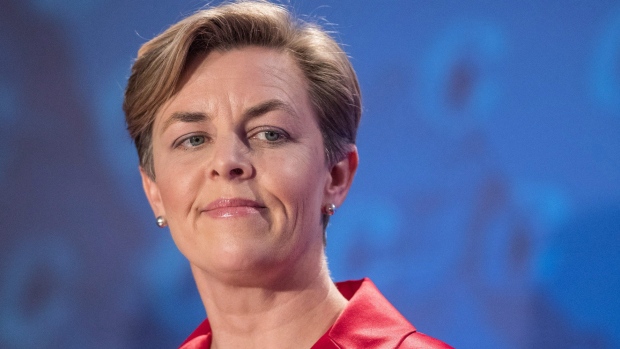To many, the result of the American Presidential election was an upset. The outcome suggests that populism is on the rise in the United States, with Donald Trump depicting himself as the newest face of the movement, It seems that the Canadian practice of adopting certain forms of American culture is finding its way into the realm of politics. Copycats of Trump have invaded the Conservative leadership race: Kellie Leitch, Steven Blaney and now Kevin O’Leary are all taking pointers directly out of Trump’s playbook in order to facilitate more media attention and capitalize on what appears to be a successful political strategy in the United States. Yet whatever these candidates are trying to sell, Canadian voters likely won’t buy it: Canada’s political culture is too different from that of the United States for these would-be Trumps to thrive.
To try to apply Trump’s personalistic campaign strategy to Canadian politics would be like trying to get Lady Gaga to perform at a Trump rally—a mismatched pairing to say the least. The different length and culture of Canadian elections make Trump-style politics much more difficult in Canada. Canadian political leaders spend a much shorter amount of time campaigning compared to our American neighbours—the campaigning period for Canada’s 2015 national election was unusually long at 11 weeks. This past American election, meanwhile, spanned 596 days from the first announced candidate to election day. A shorter running period creates more time for governance in Canadian politics, whereas years of campaigning eclipse in-office political experience on the American scene.
Lengthy campaigns in the U.S. also allow the media circus to pervade and shape the race. This is essential in understanding how Trump was able to gain traction: Capitalizing on media attention and his own reality show persona , Trump ran a marketing campaign that exploited the emotions of the American voter. The influence of the media incentivizes American politicians to make themselves marketable, and candidates that succeed in this regard are more likely to come out on top—slogans like “Make America Great Again”, or even Obama’s “Change We Can Believe In” in 2008, effectively serve as brand names for their winning candidates. The Liberal Party’s attempt to do the same in 2015, with “Sunny Ways”, did not have a fraction of the impact.
In keeping with the Trump phenomenon, Canadian Conservative candidates have begun targeting the same groups Trump insulted during his campaign. In addition to pushing her “Canadian values” test for immigrants, Kellie Leitch has explicitly suggested following Trump’s example. Steven Blaney, meanwhile, has decided that telling women what to wear should be his main platform, citing a “Canadian way of living” as his reason. To top off this group of Trump disciples, we can’t forget the cutthroat businessman and reality star Kevin O’Leary, who has recently joined the race, but claims that if he wins he will not seek a seat in Parliament right away. Rather than reflecting substantive platforms, these are all political plays meant to capitalize on the coattails of a Trump victory by regurgitating controversial issues and rhetoric, which often translate into more media attention.
While the news time that Kellie Leitch has been getting lately—far more than her other twelve opponents—speaks to the possible success of this strategy, her mediocre polling results suggest otherwise. Further, past attempts at this tactic have not translated into much electoral success north of the border. This was demonstrated in Canada’s last election with Harper’s issue with the niqab: Controversial issues and political slogans failed to rally Canadians behind the Conservatives in 2015.
The Conservative party should not resort to imitating anybody south of the border, and most certainly not Trump. Canadians have always held a certain pride in differences from their American counterparts, and superficial politics based solely on sensationalism and controversy are unlikely to win out in Canada. So please, Kellie Leitch, stop talking about media-grabbing ideals and start talking about policy. Political spectacle will only get you so far.







